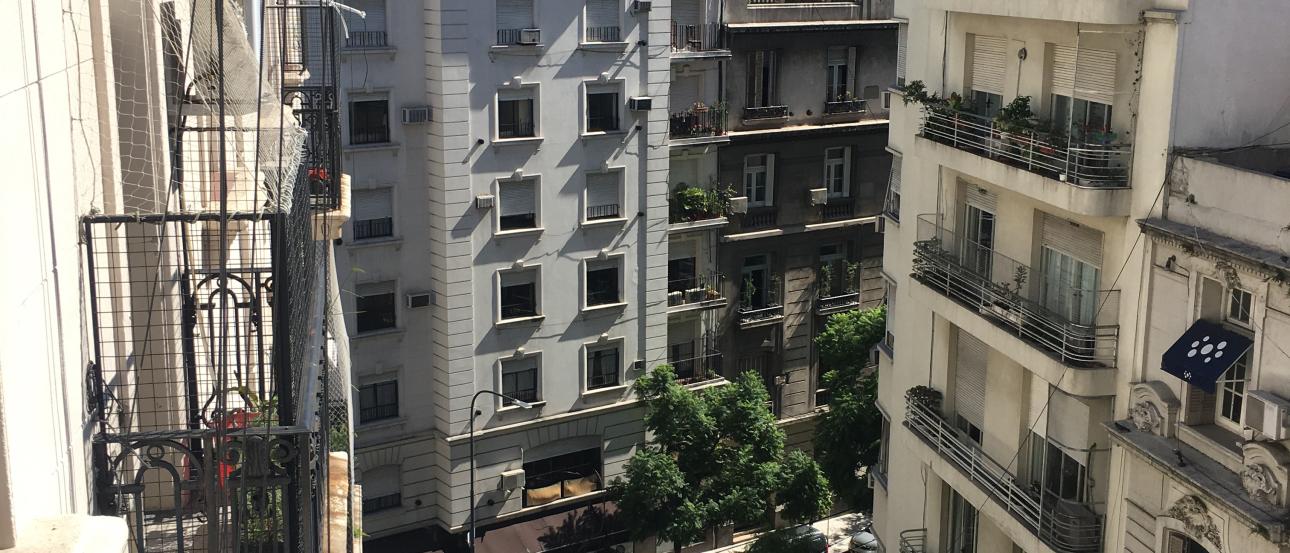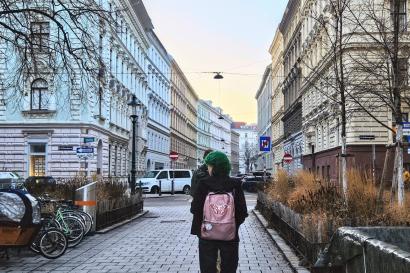Two and a half weeks ago I arrived in the magical land of Buenos Aires, Argentina. In this short time, many preconceived notions about Argentina and Argentines have either been reinforced or proven to be false.
Preconceived Notion #1: Buenos Aires as a Pickpocket's Paradise: Yes and No. I think the general lesson with every cautionary tale is "Use common sense". I was warned repeatedly about the prevalence of pickpockets in Buenos Aires. It's true, pick pocketing is such a common occurrence that even natives of Buenos Aires ("porteños") wear their backpacks on their chests as an extra precaution. That being said, if you keep a close eye on your belongings you are no more in danger of being pick pocketed than in any other tourist hub. Just don't go waving your IPhone around at a packed nightclub after a few glasses of vino because that's the rough equivalent of painting a target on your back with the words "I'm an oblivious gringo" right in the center. See? Common sense.
Preconceived Notion #2: Argentines are mega-carnivores: Yes. Argentines, as I have witnessed so far, are quite proud of their high-quality beef and use nearly every opportunity available to present the fact that their beef absent of the many chemicals that pollute the meat of America (which apparently to Argentines is the equivalent of eating a day-old raccoon found on the side of the road). Never in my life have I encountered quite so many options of beef. When asking for steak at a restaurant, I am met with the question "Yes, but what kind?". Chicken and fish are rarely served, turkey is literally nonexistent. Argentina is indeed a carnivores paradise; the concept of vegetarianism is not well understood. One of these days I would not be surprised, upon close examination of the Argentine flag, to see a rendering of a miniature steak appear beside the golden sun insignia.
Preconceived Notion #3: Argentines as Arrogant: Very False. Every Argentine I've encountered thus far has been entirely welcoming and eager to strike up a conversation. Rather than treat me as a helpless foreigner, porteños have been very inviting and seized every opportunity to share their culture, whether it be through directions on the street or conversations in shops and restaurants. Rather than arrogant, Argentines have been intensely curious- about what brought me to Argentina, my course of study, my political views... the list goes on and on. It's as though I'm Dorothy and all the Argentine munchkins are intensely fascinated as to how I wound up in Oz (hint: although I did come from the Midwest, concussion-induced hallucinations did not play a large role).
The Scourge of Plastic: Today I embarked on an odyssey of sorts, the goal being to procure any sort of flimsy plastic receptacle that could be maneuvered down a pant leg or taped to one's stomach in order to smuggle free beverages into Lollapalooza, which takes place this weekend ($12 for a bottle of water? No thank you.) After hours of searching, I was forced to admit defeat.
Plastic bags, as it turns out, are reserved almost exclusively for dairy products in Argentina. In years past I had heard rumors of bagged milk but I dismissed it as nonsense reserved for the supermarkets of Europe. But to my surprise, the grocery stores of Buenos Aires are filled not just with bagged milk, but with bagged yogurt as well. I mean really, a more inconvenient receptacle could not have been chosen for liquid/semi-liquid substances. The bags are not even resealable- bags of milk are snipped open in the corners, placed in hard plastic boxes, and kept open in the fridge. The whole process remains a mystery to me.
Minesweeper: Buenos Aires Edition: Buenos Aires is a beautiful city. The much-touted "Paris of South America" reputation really holds up well. This is the view from my apartment, in a neighborhood called "Recoleta".

Gorgeous, right? However, when strolling the sidewalks of Buenos Aires one must exercise caution. Walking around Buenos Aires is like living a real-life version of the Shel Silverstein classic Where the Sidewalk Ends. A seemingly intact sidewalk can turn into a jumbled mess of rubble in a blink of an eye, absent of any helpful markers such as tape or traffic cones. On any given day, porteños and tourists alike are flipped in the air as though they've been struck from behind with a red shell in Mario Kart. It would be more amusing to watch except for the fact that A) it's legitimately painful to collapse into a pile of freshly-crushed bricks and B) you could be the next to fall within a block. One must remain vigilant at all times.
¡Let's Learn Some Español!: The Spanish spoken in Argentina, in addition to possessing its own slang and personal flair, is distinct in that the conjugation of the "tu" form is different. By "different", I mean the word "tu" (meaning "you") is absent from the language itself and has instead been replaced by the term "vos". This is accompanied by an entirely different conjugation of the "tu" form. Additionally, both "y" and "ll" syllables are heavily accented, turning familiar Spanish words such as "calle" (kai-yay) into (kai-zshay). For those who don't speak Spanish, or who are unfamiliar with romance languages, these distinctions may not seem particularly significant. However, in reality they cannot be ignored. As much as I wish the Spanish I was taught in 11th grade in Blaine, MN- presided over by a chipper blonde 'profesora' who had graduated from my same high school no less than 5 years before me- were the same Spanish that could be applied to my study abroad experience in Argentina, alas, it is not. The realization has since dawned upon me that the Spanish-speaking countries of the world do NOT speak the same type of Spanish. Though the name may be the same, the Spanish of each region varies in its own interpretation of the language, influenced by a distinct culture, history, and peoples. So remember kids, what may be passed off as a cute nickname in Spain (for instance, "concha") may have an entirely different (read: dirty) connotation in a place like Argentina.
Chau for now!

Catherine Seltz-Drew
<p>My name is Catie Seltz-Drew. I am currently a junior pursuing a degree in International Studies. My semester in Buenos Aires will be my fourth experience abroad following a year in Italy in high school and two previous semesters abroad in Rome, Italy and Seoul, South Korea while in college. I have a passion for cooking and eating; I love learning about a country through its cuisine. After my semester in Argentina, I will graduate from Loyola and hopefully continue to travel and eat my way around the world.</p>








